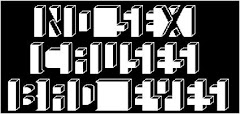Subject: Major article on Hamilton Heights real estate broker in "New York Magazine"
From: "Mark D. Levine"
To: "Jordi Reyes-Montblanc"
Hey Jordi- Hope all’s well with you. In case you haven’t seen it, check out:
Let’s catch up soon.
Saludos-
Mark
New York
Real Estate
Whose Harlem Is It?
Willie Kathryn Suggs, the so-called Queen of Harlem Real Estate, has sent local housing prices soaring. She’s also touched off a heated debate: Should Harlem be preserved as an affordable haven for blacks? Or sold to the highest bidder?
By Robert Kolker
Published Jul 6, 2008
(Photo: Richard Renaldi)

Willie Kathryn Suggs is walking me through a handsome four-story brownstone at 350 Convent Avenue in Harlem—or, as she puts it, “a house everybody goes gaga for.” The most successful and reviled real-estate broker in Harlem is small and intense, a prim, light-skinned black woman with wire-rimmed glasses, her hair pinned back in a clip. The house, a Suggs exclusive, is about to be listed at $3.875 million, up from the $380,000 it sold for just nine years ago. As she shows me the ornate parlor (“Four types of wood!”), Suggs mentions that she handled that sale, too, as well as one in between, in 2005, for $1.925 million. That’s two sales going on three, for a total of $6.2 million, and a tenfold run-up from the original price. From this place alone, Suggs stands to earn close to $400,000 in commissions.
Suggs has a habit—a compulsion, really—of talking nonstop and unself-consciously, changing subjects every few seconds, gesturing wildly and injecting cornball expressions that hint at the Wisconsin girl she once was, like “li’l ol’ me,” “works for me,” and “oh happy happy!” But a ripple of exasperation colors her voice as well, as though she’s convinced she’s the only sane person in an insane world. Out of nowhere, she’ll launch into derisive shrieks in odd cartoonish voices about how “stupid” people can be. “The biggest problem I have,” Suggs says, “is people think they know what Harlem is, and they haven’t a clue! First of all, they’re not brownstones. Brownstone is a building material, not an architectural style … ”
One of Suggs’s other favorite expressions is happy camper. This she reserves for the people who are sitting pretty in life, like the current owner of this house, a woman named Lovelynn Gwinn. Suggs had convinced Gwinn to buy another house in Harlem back in 1996. As the market exploded, that place soared in value, giving Gwinn the means and leverage to buy this one. Gwinn is now a close friend of Suggs’s, and runs Suggs’s firm’s Website. Gwinn also happens to be white. Their friendship, and the real-estate deals of which it was born, are Exhibit A among those who charge that Suggs is selling out Old Harlem. But to Suggs, Gwinn was just smart. She’s a happy camper. “People hate Lovelynn’s guts,” she says. “Now, did she do anything offensive? No. All she did was come to me to buy a house. I showed her how to buy a house.”
All you need to know about the current backlash against Harlem’s gentrification, Suggs says, comes down to the happy campers who bought at the right time and the stupid people who didn’t. Those who didn’t buy, she says, are just jealous, and Suggs never seems to miss a chance to rub it in—even if they’re black. “Black people can be racist,” she says, shooting me a coy look in the restored kitchen. “Hello? Reverend Wright? We’ve got our little racists running around. Some of them want Harlem to stay black. They actually think Harlem was built by and for black people. And we have to tell them all the time, ‘Excuse me, dear? We weren’t here. We didn’t even lay the bricks, right? Some of us worked on the subway tunnel, okay. But this was built by and for upper-middle-class white folks. We were the second and third owners. We were never—and I mean zero, nunca, never—the first owner of all these houses!”
But what about the people who would like Harlem to stay mainly black, I ask, even if it wasn’t always that way?
Suggs shuts her eyes and shakes her head. “You don’t have a God-given right to own your house till the end of time,” she says, “unless you actually own your house. We’re not talking about a country like Italy that’s for Italians. We’re talking about a neighborhood in the United States of America. There’s nothing that says Harlem has to be black!”
No part of New York has changed more dramatically during the recent historic real-estate boom than Harlem, and no broker has done more to drive that change than Willie Kathryn Suggs. In the past twenty years, Suggs, a former TV-news writer who hadn’t set foot north of 125th Street until 1984, has almost single-handedly pushed up sale prices on many Harlem homes to ten, twenty, even 40 times what they were previously worth. She was the first broker to break Harlem’s half-million-dollar barrier, in 1995, the first to reach $850,000, in 2000, and the first to surge past $2 million, in 2002.
But as Willie Suggs has changed the face of Harlem, much of Harlem has come to turn on Willie Suggs. Competing brokers and even some former sales agents now call her a predator, a bully, a thief—Willie Thuggs. Even by the aggressive standards of New York real estate, they say, she will boldly horn in on a listing, land a sale, or lay claim to a commission. “Everyone knows,” says one broker, “when you go to work with Willie Kathryn Suggs, you better watch your back.” Suggs has also become a lightning rod in Harlem’s larger gentrification debate. Critics say she has wantonly driven up real-estate prices until no one but the richest Harlemites could afford them and, worse, delivered much of the neighborhood into the hands of wealthy whites. Now every new sale she rings up seems to raise a pair of uncomfortable questions: Should Harlem be preserved forever as an affordable haven for blacks? Or should it be sold to the highest bidder?
http://nymag.com/realestate/features/48328/








+(3).jpg)



.jpg)
+(3).jpg)


No comments:
Post a Comment